The 2019 Design for Transition International Conference IV was successfully held at Jiangnan University from Oct. 24th to Oct. 26th. The conference, themed System View in Design Transitions, is an important platform that elaborates Jiangnan University's focus on the transformation and exploration of design education, research and practice in the new era, and sharing the successful experience and academic summary in the field of international interdisciplinary and new industrial practice, which is the 4th conference of the Design for Transition Conference series that is initiated by Jiangnan University since 2016.
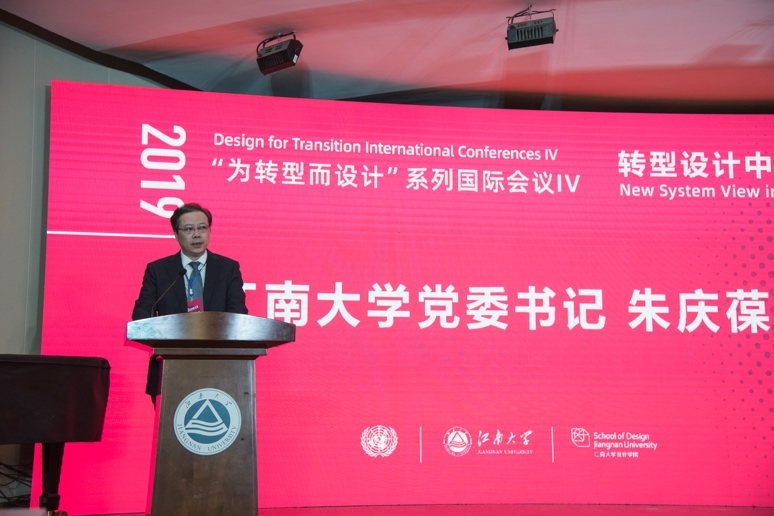
Conference opening address by Chairman of University Council, prof. Zhu Qingbao
It has invited 38 keynotes and guest speakers universities and companies from all over the world, including University of Cincinnati, Politecnico di Milano, University of Western Ontario, Chiba University, Plymouth University, Pontificia Universidad Católica de Chile, Tehran University,Srishti Institute of Art Design and Technology, Aarhus University, Singapore University of Technology and Design, Monash University, IEEE, and Tsinghua University, China Academy of Fine Arts, Hunan University, Tongji University, Guangdong University of Technology, GAFA, Beijing Science and Technology University, Shanghai Jiaotong University, Shanghai University, Zhejiang Sci-Tech, Zhejiang Normal University, as well as professionals from companies like Midea, Alibaba, Philips, Robam Electrical Appliances, Magis, Xavor Corporation, and Autel Technology to share their expertise in the frontiers of design. With 9 keynotes and 5 thematic forums on Experience Design Frontier Methodology and Technology, Healthcare Design and Future Lifestyle, Brand Strategy and Future Experience System, and Architecture and Heritage Protection for Future Experience, and Design 2030, the 3-day conference was a great gathering of international minds on the frontiers of design education and practice, that welcomed over 300 participants from all over the world.
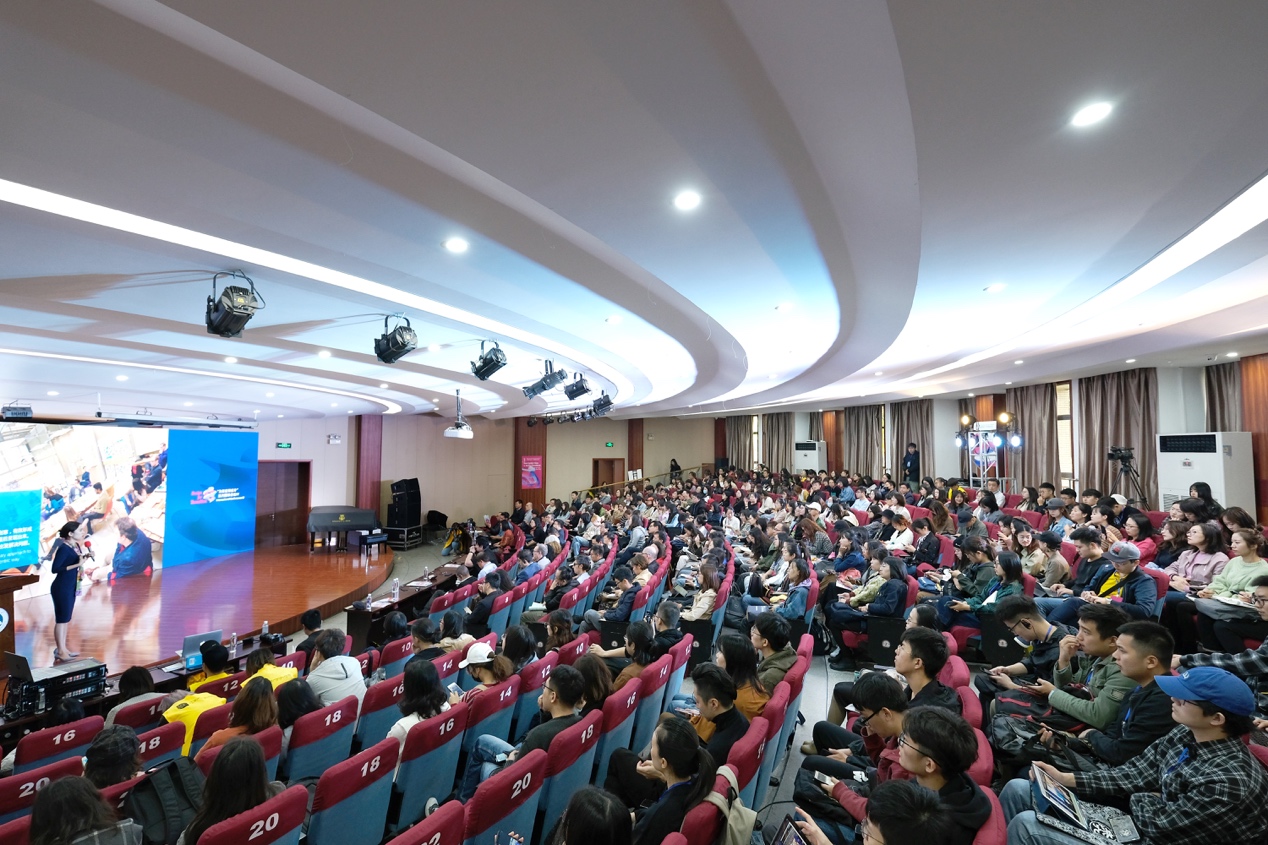
Conference Audiences
During the conference, 9 keynote speakers shared their expertise in the areas of design from the perspectives of both design education and design practices in face of the changes in economics, social and environmental changes, with the topics ranging from The Global Digital Service Economy: Opportunities and Challenges for Design, The Value of Service Designer – From Measuring Service to Healthcare Transformation, System Approach of Experience Design, to the Industrial Applications of VR and AR Technologies, Industrial Design and the Challenges of Sustainable Development, forecasting on the Next Generation Design: systematic, systemic, social and sustainable, and For Real World and Possible Future——Design Innovation Thinking, sharing the design education practices on Transitive: Information to Experience the Emergency Patient Empowerment –theories and technologies, as well as The Origin of Chiba University Design Course and Acquisition, Storage, along with Utilization of Digital Modeling Data for Cultural Assets, and Design as Science or Design as Discipline: Model of the Tsinghua University.
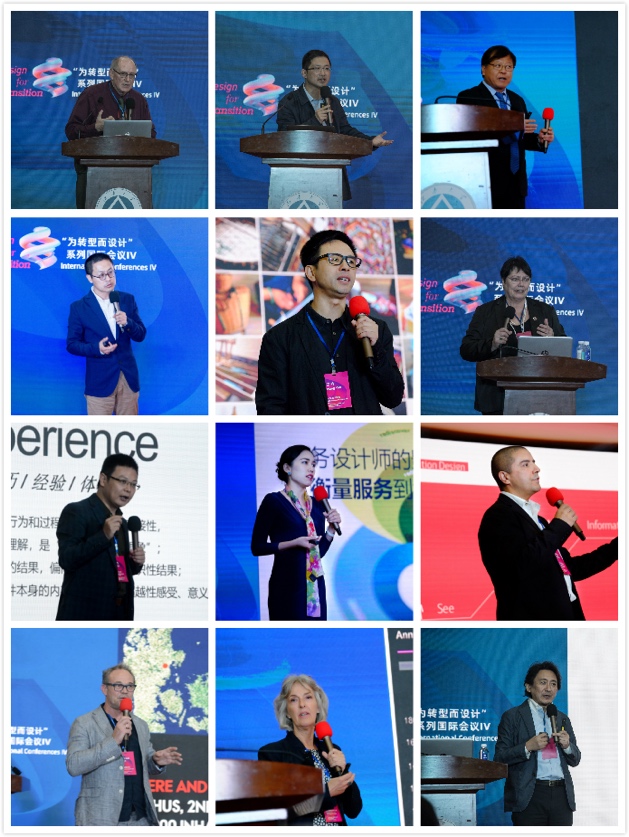
Conference keynotes
In the meantime, the Design 2030 Preconference, relying on the Design for Social Innovation and Sustainability Network (DESIS), hosted speakers from China, Iran, Singapore, India and UK, elaborated on discussion around the social, economic, and environmental changes, and responds on how design could activate innovative design and technological innovation, business model innovation, lifestyle innovation, and cultural innovation to deepen interaction and promote the construction of a sustainable society.
The Experience Design Frontier Methodology and Technology forum, standing on the researches of the Experience Design Frontier Methodology and Technology Discipline Innovation Center (111 Center), gathered speakers from China, US, Italy, and UK, focuses on the discussion of the in-depth influence and opportunities of materials and technology innovation in the field of intelligent and engineering technology in the context of the deep integration of new IoT technology and manufacturing and service industries, with an aim to explore how to innovate and integrate design and technology to create a better personalized experience.
The Healthcare Design and Future Life Style Forum, hosted by the International Joint Laboratory of Health Design of Jiangnan University, jointly discussed the future trends of the big health design and industry under the system view with the relevant health industry and academia, aiming to establish a data-driven, large-health platform that connects medical resources, smart wear, and health management to systematically integrate products and services.
Future Brand Strategy and System Experience Forum, invited designers from design industries from China, US, Italy, Korea, explore the future development strategy of brands in different industries and the future experience of brands under the new system concept, as well as the new brand future experience system, so as to discuss how to promote the development of new economy, new industry, and new people's livelihood.
And the Architecture and Heritage Conservation for the Future Forum, invited professors from Italy and the Jiangnan region in China, explored the research methods, research objects and research practices of architectural heritage, aiming to establish a new system view between the historical value and social value of architectural heritage, and explore the future of architectural and heritage conservation development.
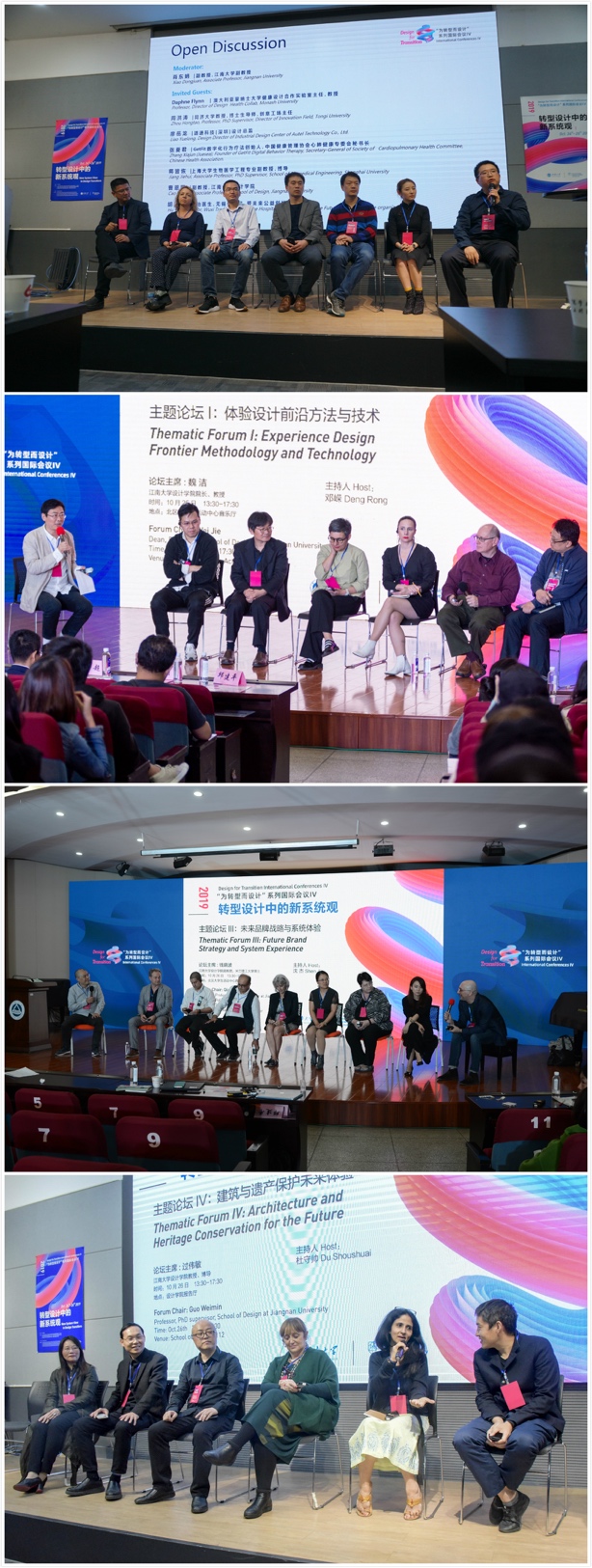
Inspiring Open Discussions
As shared by the conference Chair, Vice president of Jiangnan University, Prof. Zhang Linghao, today's design is playing an unprecedented role as a driving force in the future-oriented industry, environment, technology and social transformation. In the face of complex design problems of different eras, the system view is always the effective thinking, method and exploration direction of research, definition and practice. Today's complex system of transitional design is a social technical system that undoubtedly has new features that are borderless, adaptable, and human-centered. Therefore, system-based innovative design is applied in many emerging fields. It is necessary to re-examine the new combination of system theory and contemporary design systems. From concept, thinking to process tools, new thinking can be made to design sustainable solutions more effectively. To re-imagine social, technological and ecological infrastructure, activate organizational and business practices, and promote social inclusion and equity.
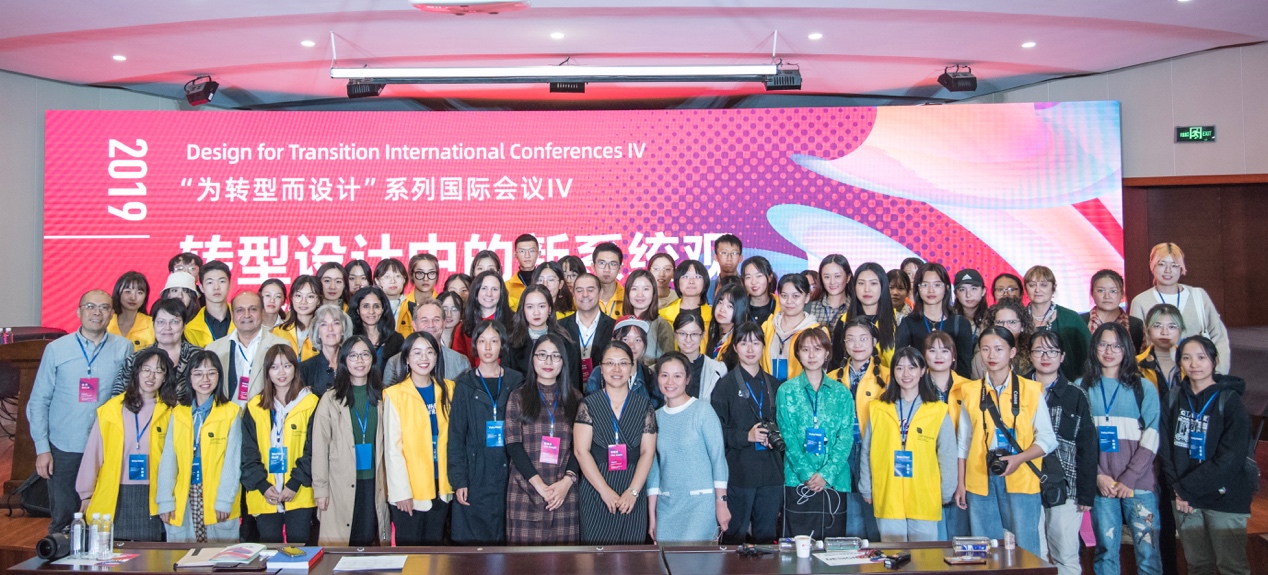
Conference working team cheers for the success of the conference
These cutting-edge discussions will surely become a good catalyst for promoting cross-integration and cooperation in the field of design disciplines at home and abroad, promoting design disciplines from different dimensions for a better life experience, more sustainable social development, and a healthier living environment.
For more information about the conference, please visit the conference website: http://designtrans.net
 ENGLISH
ENGLISH
